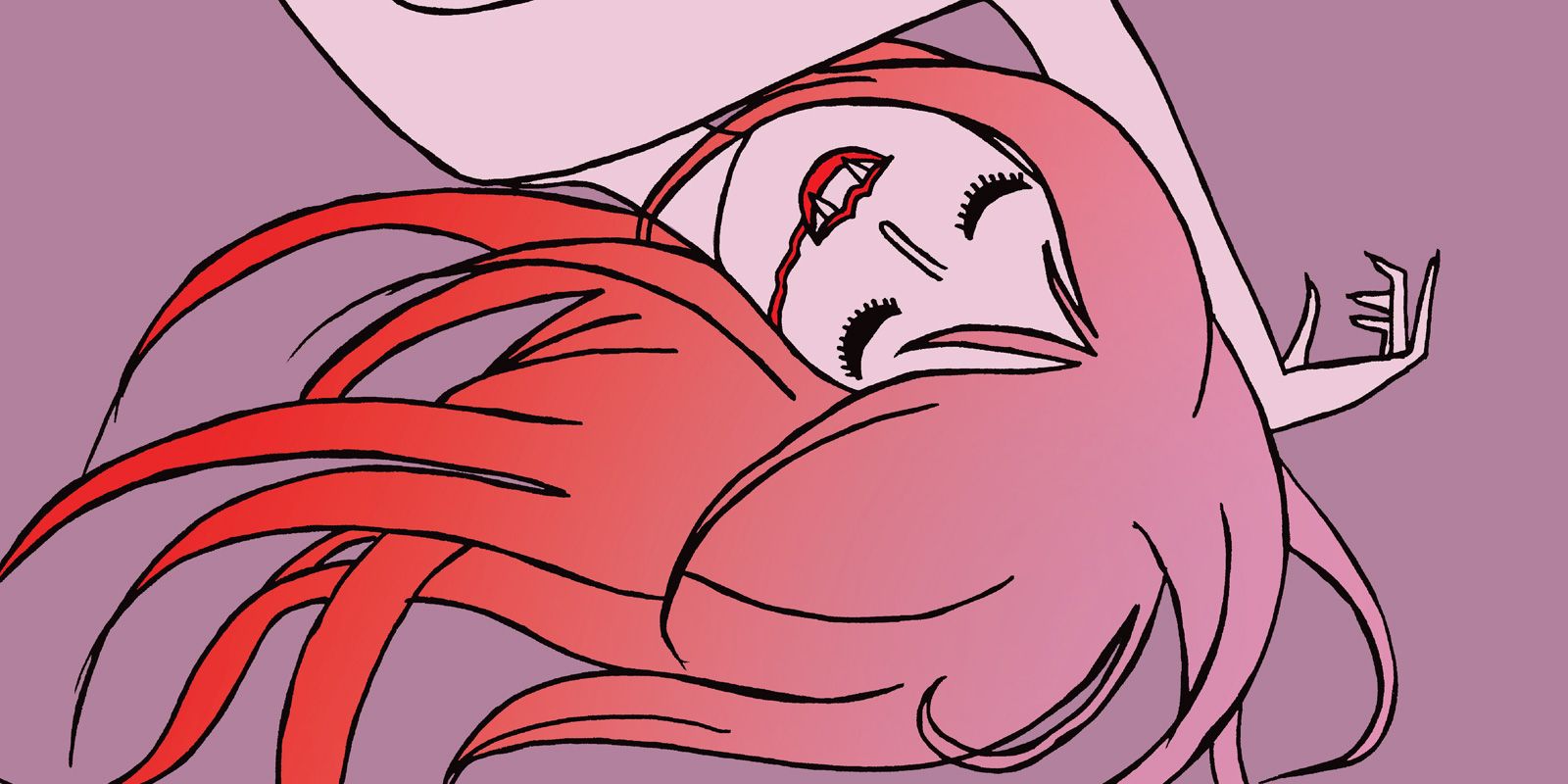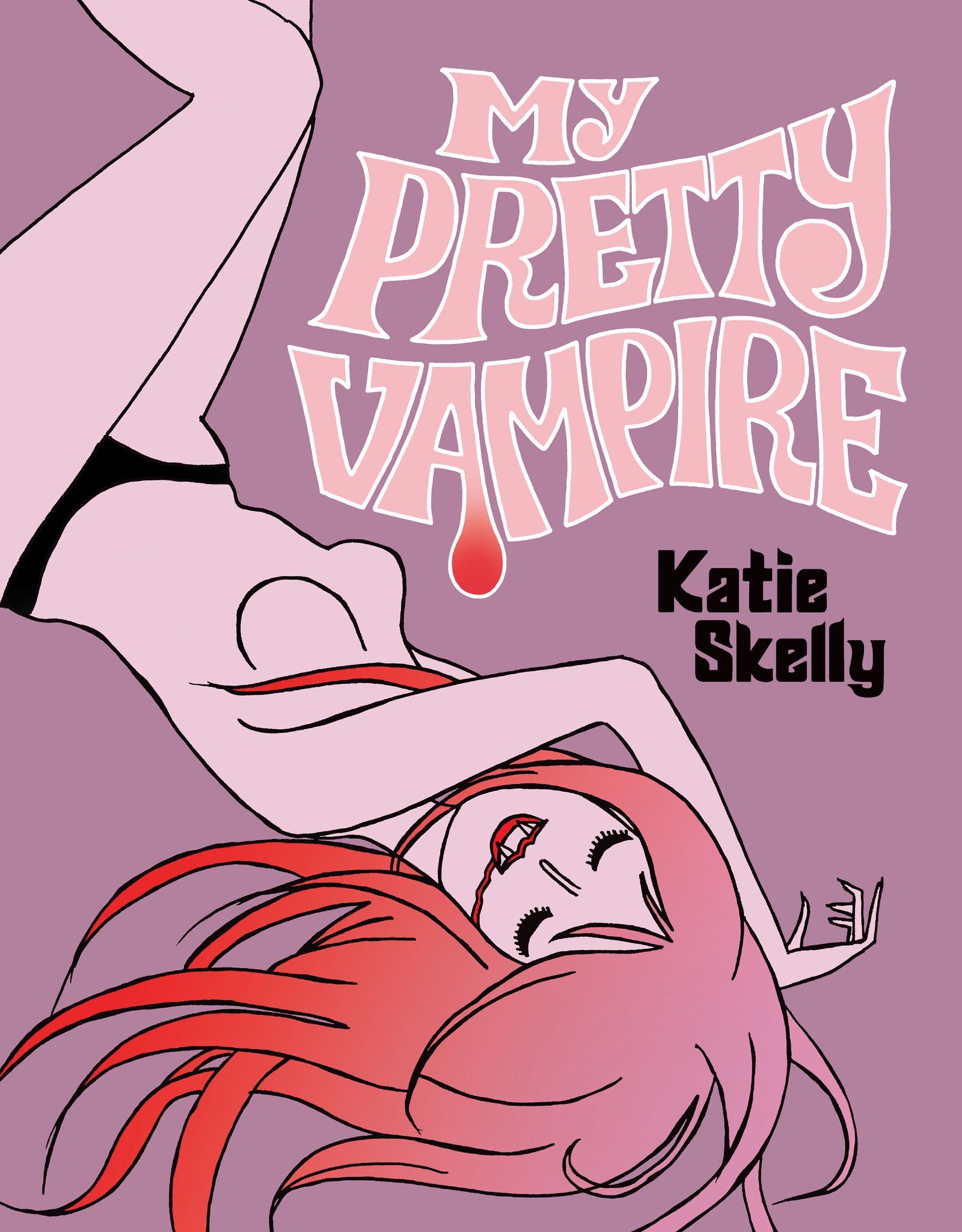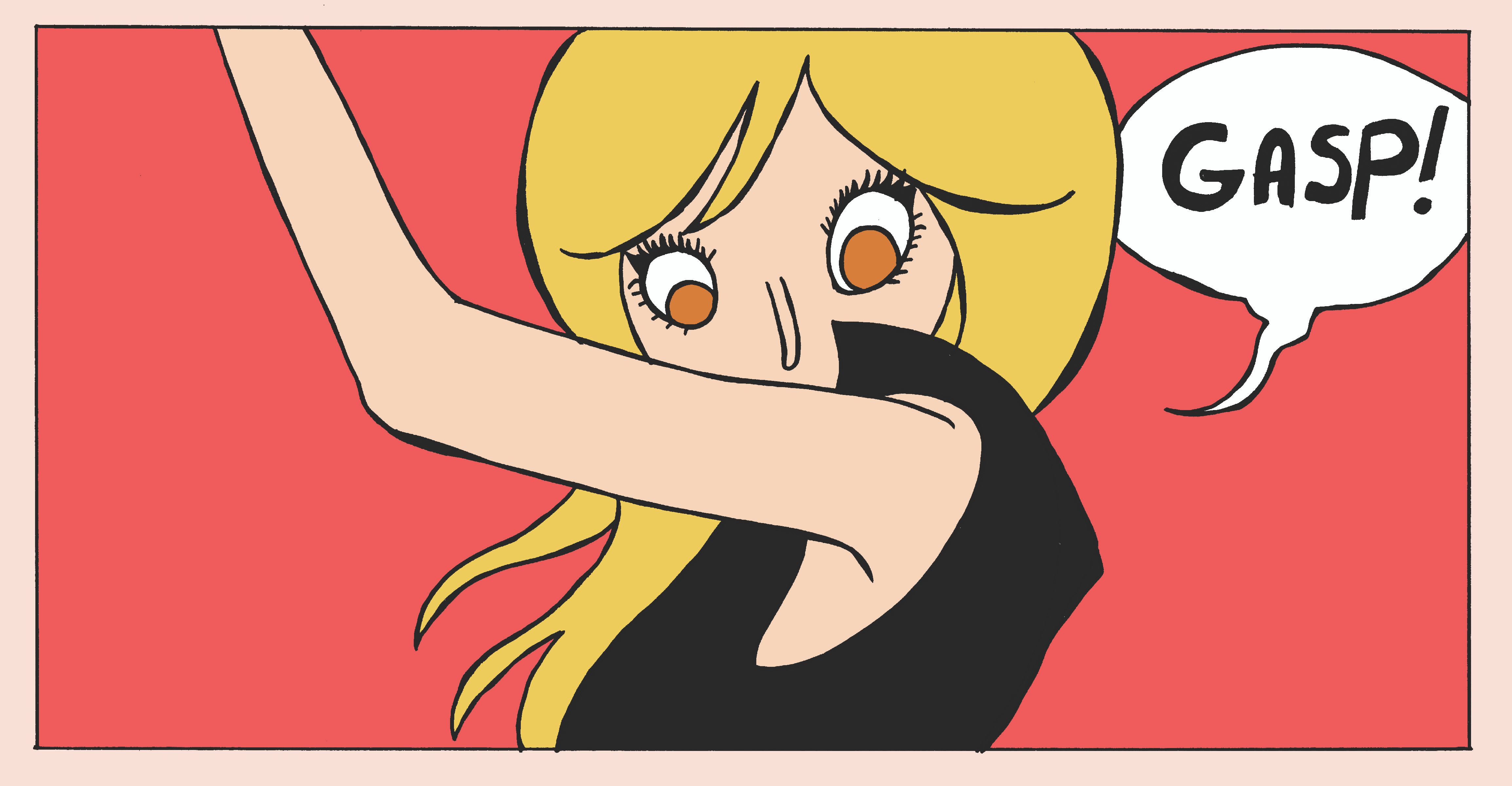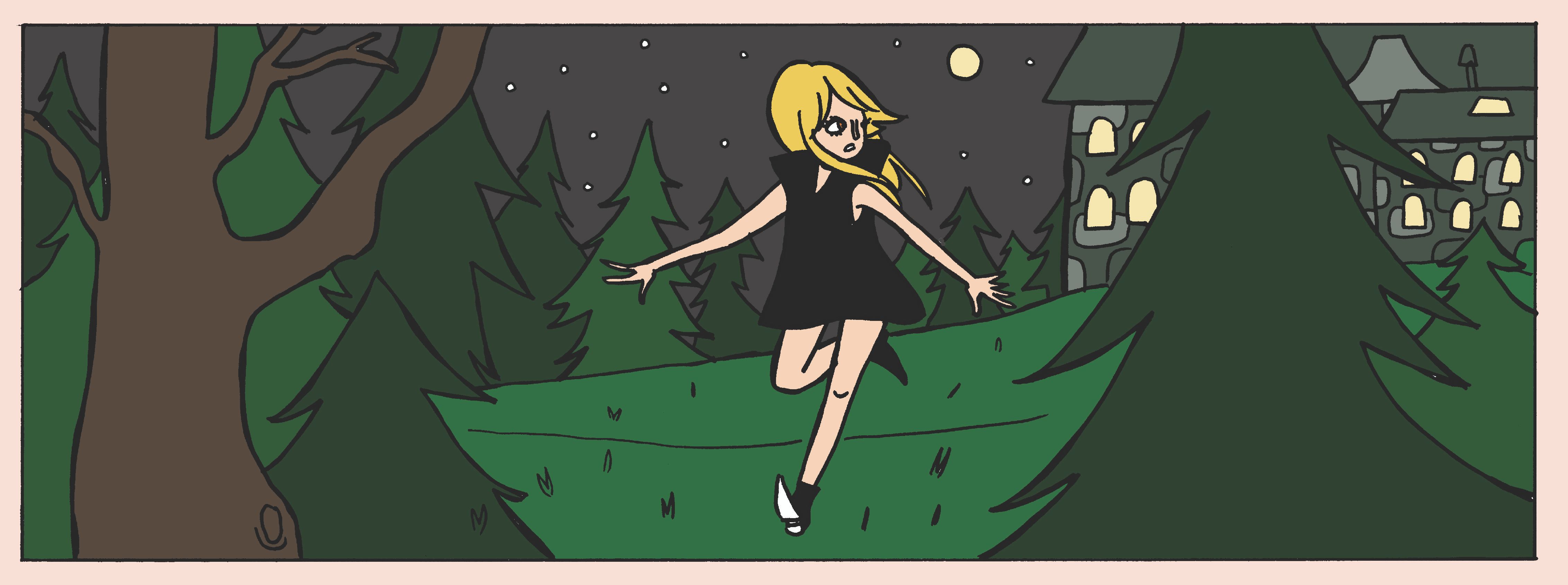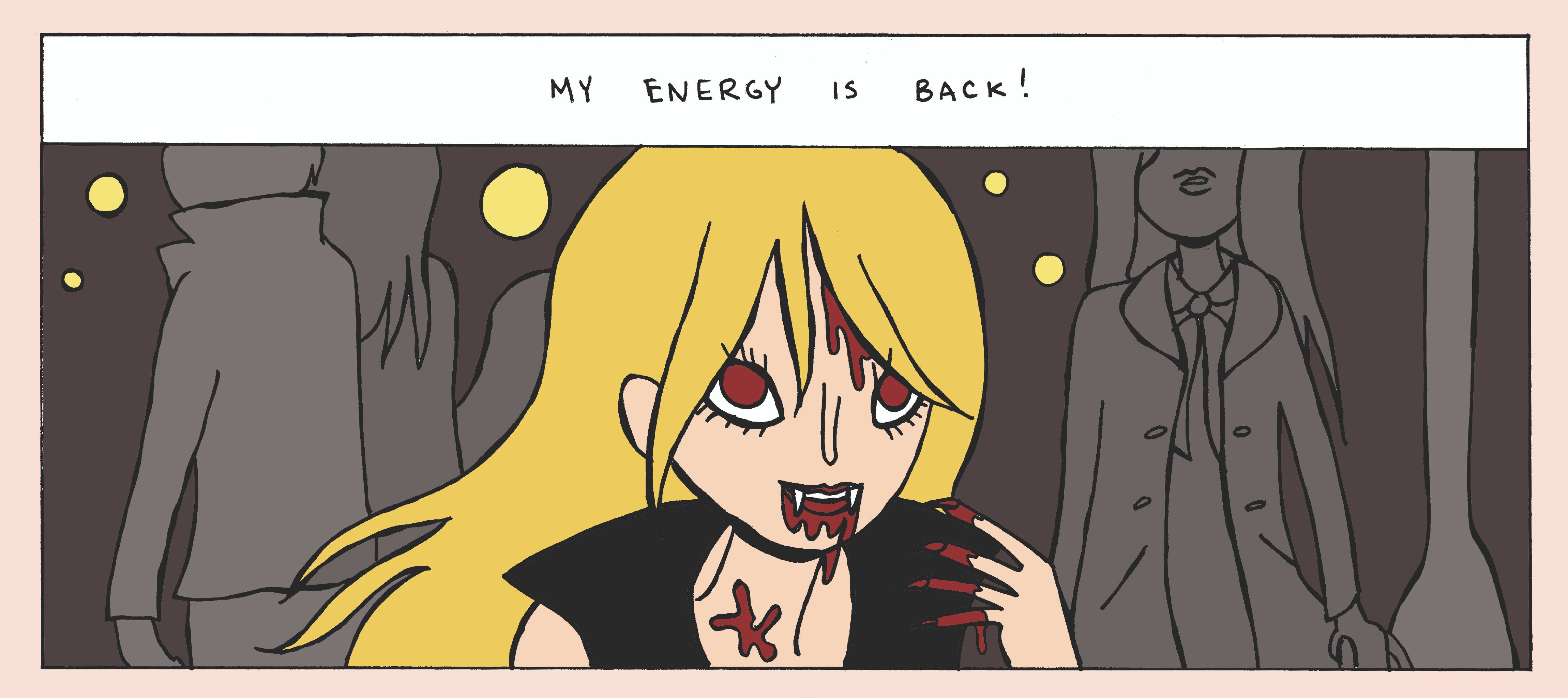Cartoonist Katie Skelly’s My Pretty Vampire is a racy horror ride, an affectionate nod to exploitation films that plays knowingly with its confining genre conventions. My Pretty Vampire’s protagonist is Clover, a teen vampire, hidden away from the world by her brother. Is he protecting her from wooden stakes, or does he harbor more sinister reasons?
Escaping his clutches, Clover goes on a sexy, bloody escapade through the outside world. Skelly’s publisher, Fantagraphics, describes the results as "havoc [that] would make Dario Argento proud."
RELATED: Bad girls, good comic: Katie Skelly’s ‘Operation Margarine’
With the 108-page hardcover graphic novel on sale this week, CBR discussed with Skelly the roots of My Pretty Vampire in both comics and film, as well as the inescapable connection between horror comics and sex.
CBR: Katie, where is Clover when readers open to the first page?
Katie Skelly: Clover is wrestling with a dream she’s having. It’s within a psychic space in the plastic castle where she’s being kept by her brother.
She breaks out on her own, but she’s not quite ready for the world outside, is she? Does she have any expectation for what she’ll encounter?
Well, Clover did have a life before she was a vampire, but she was only a teenager so she doesn’t have a whole lot of experience in the world. It leads her to some dangerous places.
The artwork is very loose and cartoony, cute even. Was that a deliberate choice to offset the horror of Clover giving in to her bloodlust?
Definitely. I’ve always drawn in sort of a cute style, and in my last two projects I explored how that style interacted with darker subject matter. For My Pretty Vampire I decided to try that against gore and horror. I’m really happy with the result.
My Pretty Vampire is your first color comic. How did that change your approach to the artwork and storytelling?
I realized I could use color to really heighten the mood of the story, and so as I wrote it, the story got grislier and more melodramatic. It felt really freeing to move away from black and white. This is probably the most baroque thing I’ve done so far.
The block coloring approach you employ used to be the comic industry standard, but is rarely seen anymore. How did you settle on that approach? And how did you decide on the bright color palette, which adds great visual punch to the pages, for a horror book?
That started with looking at one of my favorite comics, Barbarella by Jean-Claude Forest, and working to understand how his spot-coloring worked and reconstructing it for my own purposes. I’m very much a color-in-the-lines person too; my colors don’t really stray outside of their objects. So after some experimentation I figured out that I could still “spot color,” even if the comic was full color. You see it more in film, I think, especially in films like Suspiria, which was a huge inspiration on this comic in terms of style. I was really hoping for the same super-saturated, almost grotesque effect of overwhelming color.
My Pretty Vampire is a very racy, sex-charged book, but there aren’t many positive relationships in it - and the few people that might possibly be in one wind up snack food for Clover. What does the horror genre have against physical relationships?
Horror comes from fear of the unknowable and what can’t be controlled, and what could be more unknowable than love and lust? It’s why virgins make it to the final girl stage in slashers and survive. Sex typically marks women for death in horror. I wanted to tap into that paranoia a little bit, but twist the ending to a less binary result.
What about your influences for My Pretty Vampire -- there’s some exploitation cinema, some horror, but you also imbue it with a surprising sweetness. Can you recognize specific influences in this book?
I binge-watched films by the French director Jean Rollin and the Spanish director Jess Franco, particularly their female vampire films from the 1970s. They’re really surreal and sexy. No one else ever approached the subject like they did, I think. They worked some pornographic elements in, but they always found these weird, awkward and poetic moments as well. I also also got very into the Italian artist Guido Crepax’s horror comics, and some creepier manga than I usually read, like Cat-Eyed Boy.
You’ve previously worked with publishers Adhouse Books (Operation Margarine) and Sparkplug Books (Nurse Nurse). How did you hook up with Fantagraphics for My Pretty Vampire? Did the working relationship change in the shift to a (slightly) larger publisher?
I’m really grateful to be working with Fantagraphics -- it was my dream for years! The majority of comics I’ve read that helped shape my idea of what comics could were published by Fanta, and so it feels like closing a nice circle to be with them now. I worked primarily with Eric Reynolds, who gave me lots of space and support to make the work I wanted to make. Even though they’re bigger than the other companies I’ve worked for, it still felt just as comfortable and intimate as my previous experiences.
What’s next for you?
I’m writing out a bunch of ideas at the moment. I keep shifting my focus to westerns because I’ve found I really like writing these bloodier stories now. And a couple other dirtier, nastier things are coming together too. So just more comics all the time!
My Pretty Vampire is available now from Fantagraphics.

